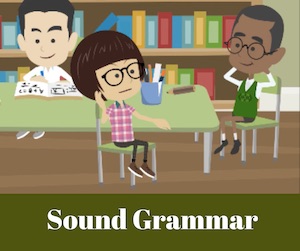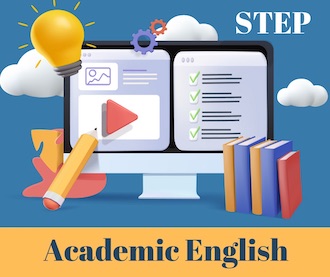Learn Academic English
Student can listen to short news stories and hear and learn more advanced vocabulary.
What are the News Lessons?
These lessons help students learn more difficult vocabulary often used in academic English and business settings. Students can listen to six short news reports and take a quiz.
Each lesson is usually two minutes long and contains six stories. Each news story is about twenty seconds long. The stories are fictitious, but represent a story that is typical of a news report.
Why should students learn academic English?
Written language is very different than spoken language. Students can hear formal written language in academic lectures, business settings and in news stories. The language is different because it is written or outlined beforehand. As a result, more complex words and grammatical structures are used. Students can encounter such language, often called Academic English, when they reed textbooks, listen to the news, or view academic lectures or speeches.
Vocabulary
The words in the stories use a lot of low-frequency words, which are words that are not spoken often in conversation. These words are usually only written. For example, a word like, petition, or ,abolish, would rarely come up in daily conversation, but it might appear in a news story. The stories also use words with negative associations that are rarely found in casual conversation but often appear in the news, such as, murder, arson, scandal, etc.
Grammar
Written language also uses more complex grammar than spoken English such as the following:
Passive tenses
It has been decided that the election will be postponed.
Complex clauses
The parliament discussed the petition signed by the citizens living overseas.
Learn Vocabulary Fast
ELLLO has a special lesson showing how students and teachers can quickly find difficult words in any text, translate them to any language, and then create flash cards to learn and review them. Watch the following video tutorial showing how to learn vocabulary fast.
Study Plan for the News Listening Lessons:
1) Listen for the Main Message
In the first listening, students should listen to the recording to get the main idea of the story.
2) Take a Quiz
In the second listening, students should listen again and complete the quiz provided with the lesson. This quiz helps students check their listening comprehension. These quizzes are great practice activities that students can do on their smartphone for free!
Students can use these lessons to practice test-taking by taking the quiz as they listen the first time.
3) Listen and Read
In the third listening, students should listen and read the text simultaneously. Students will be able to notice language they may have missed before.
What's in the News?
Below are some recommended lessons for News Stories.
There are 20 lessons for News.
News stories about insects, gambling, a shark, school, fireworks, and the weather.
News stories about memory, clothes, dogs, a bean bath, heart disease, and weather.






















